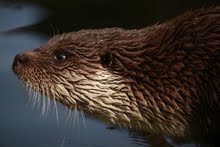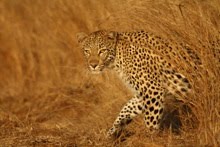Well, maybe that does not completely capture the experience; "bird walk" for me conjures up images of late morning strolls, twenty 50-somethings, compact Nikon binoculars and botanical gardens where chit chatting is somewhat more important than finding birds.
 Last week's walk was a far cry from duck ponds and park benches. We left the Kühtai pond (Sellraintal) at 5am and headed up one of the valleys to the South West. Our mission: to do a bird survey up in to the higher Alps. Kühtai itself is at 2020m asl and is one of my favorite ski resorts, but there is almost no snow left in the valley. As we headed up the valley, we found more and more snow. But still, the Great Tits were out and about, as usual, making a lot of noise. But it was the Ring Ousels that got my attention. And there were lots of them about. Nuthatches, Wrens and Bramblings added to the morning chorus.
Last week's walk was a far cry from duck ponds and park benches. We left the Kühtai pond (Sellraintal) at 5am and headed up one of the valleys to the South West. Our mission: to do a bird survey up in to the higher Alps. Kühtai itself is at 2020m asl and is one of my favorite ski resorts, but there is almost no snow left in the valley. As we headed up the valley, we found more and more snow. But still, the Great Tits were out and about, as usual, making a lot of noise. But it was the Ring Ousels that got my attention. And there were lots of them about. Nuthatches, Wrens and Bramblings added to the morning chorus.Near the edge of the tree line, the bird diversity dropped substantially, but there were certainly lots of, taking advantage of the open land and melting snow. Everywhere we turned our ears, the pipits were out calling.

A little way up the path we started to get in to deeper and then deeper snow, and pretty soon there was only snow and boulders to be seen. It was way up here in the snow that we picked up our first Alpine Accentors (Alpenbraunelle) and Wheatears. Chattering away, the wheatears buzzed from boulder to boulder showing off their gorgeous colours - what a sight!
 Early on, I tried my hardest to get some good views of the alpine accentors. Little did I know that as we neared the peaks/ridges we would be seeing them up close (but to be honest, at that stage I was more interested in not falling off a cliff or disappearing in an avalanche than studying pretty little birdies). Anyhow, these alpine accentors truly have interesting sex lives. For those of you with a sesquipedalian penchant, their breeding system is called polygynandry, in which about 3-5 males defend a group territory that encompasses 2-3 spatially separated females (cf. Heer 1996 Journal of Ornithology 137/1). Despite a dominance structure, they are highly promiscuous and offspring can be sired by numerous males (three males in Heer 1996!). Individuals feed in very loose associations (or completely independently) and dominant males tend to dedicate more time to feeding than subordinate ones (Janiga & Movotna 2006 Ornis Fennica 83). Not surprisingly, the alpine accentors tend to choose a diet rich in lipids during the winter, presumably for their high energy content (Ibid).
Early on, I tried my hardest to get some good views of the alpine accentors. Little did I know that as we neared the peaks/ridges we would be seeing them up close (but to be honest, at that stage I was more interested in not falling off a cliff or disappearing in an avalanche than studying pretty little birdies). Anyhow, these alpine accentors truly have interesting sex lives. For those of you with a sesquipedalian penchant, their breeding system is called polygynandry, in which about 3-5 males defend a group territory that encompasses 2-3 spatially separated females (cf. Heer 1996 Journal of Ornithology 137/1). Despite a dominance structure, they are highly promiscuous and offspring can be sired by numerous males (three males in Heer 1996!). Individuals feed in very loose associations (or completely independently) and dominant males tend to dedicate more time to feeding than subordinate ones (Janiga & Movotna 2006 Ornis Fennica 83). Not surprisingly, the alpine accentors tend to choose a diet rich in lipids during the winter, presumably for their high energy content (Ibid). In this higher zone, we also came across Alpine Choughs, Snow Finches, and calling Ptarmigans. The Alpine Marmots also kept us entertained as they ran about through the snow and boulders.
In this higher zone, we also came across Alpine Choughs, Snow Finches, and calling Ptarmigans. The Alpine Marmots also kept us entertained as they ran about through the snow and boulders.Along the highest ridges, the going was steep, we had no idea where the path was, and were trudging through waist-deep snow. The fog was thick, but we were pretty sure there was a good view from up there. At some stage we decided to throw caution in to the wind and just slide down the snow slope on our bums and try to find the trail again at a lower altitude.
It seems that many high alpine species are adversely affected by ski-pistes; either through disturbance and stress (Arlettaz, Patthey, Baltic, Leu, Schaub, Palme & Jenni-Eiermann 2007 Proceedings of the Royal Society B 274/1614), or the reduction in the quality of open habitats (Rolando, Caprio, Rinaldi & Ellena 2007 Journal of Applied Ecology 44/1). Many of these detrimental effects can be minimized by only skiing on or close to pistes, creating "no skiing" wilderness areas, and by the careful construction of pistes (low-invasiveness, only using heavy equipment where absolutely necessary, and focusing only on the removal of potentially dangerous boulders).











.jpg)








.jpg)



1 comment:
I enjoyed your alpine bird outing. Not only does the schussing down the hill in snow strike me as refreshing right now as I sit in the middle of a Philadelphia summer, but there is a special reward in seeking out those birds that live so high and out of the way.
What a nice off the beaten track bird walk.
Post a Comment